Monthly Archives: April 2023
Islanders-Hurricanes series preview: Betting by the numbers
With Sidney Crosby and the Penguins' playoff streak snapped, the team that no one has any fun playing - the Islanders - laid claim to the final Stanley Cup Playoffs spot. Their reward? A best-of-seven series with the top-rated team in terms of expected goals at even strength. Of course, the Hurricanes won't be thrilled about needing to overcome Ilya Sorokin to convert those to actual goals, especially with how they finished the season offensively.
Series odds
| TEAM | GAME 1 | SERIES | SERIES HANDICAP |
|---|---|---|---|
| Islanders | +150 | +170 | +1.5 (-125) |
| Hurricanes | -175 | -200 | -1.5 (+100) |
This is the second-biggest favorite that this iteration of the Hurricanes has been, as they were well into the -200s before a first-round series with the Predators two years ago. They shouldn't have as easy of a time against the Islanders, who routinely find themselves as the underdog this time of year.
Ratings
Using primarily even-strength metrics to evaluate a team's quality, we've established how a team rates relative to an average NHL team. We use these ratings to create an implied win probability split in each game which we then translate to a fair moneyline price for each before home-ice advantage is applied, and the sportsbook takes their vig on a bet. Here's how these teams rated for the season, and when isolating play after the All-Star break.
| TEAM | SEASON | POST-ASB |
|---|---|---|
| Islanders | +1% | +3% |
| Hurricanes | +30% | +20% |
Yes, you read that correctly. The Hurricanes came out of this season as the top-ranked team in my rating system, even though their comparative statistics slowed down from their unsustainable levels early in the season.
Advanced metrics at even strength
XG%= Expected goal share
HDC%= High-danger chance share
HDCV%= High-danger chance conversion rate
OPP. HDCV%= Opponents' high-danger chance conversion rate
| TEAM | XG% | HDC% | HDCV% | OPP. HDCV% |
|---|---|---|---|---|
| Islanders | 48.8 | 50.1 | 11.2 | 10.2 |
| Hurricanes | 58.5 | 58.0 | 10.9 | 11.5 |
*Average NHL HDCV% = ~12.5%
If the idea is to accrue as many high-quality scoring chances as possible without allowing those same chances to opponents, Carolina is doing something right. Only the Devils had more high-danger scoring chances than the Hurricanes, and no one allowed fewer. They'll need that disparity against a goaltender who stopped high-danger chances at an impressively high rate.
Goaltending matchup
| PLAYER | GSAx/60 MIN. |
|---|---|
| Ilya Sorokin | 0.86 |
| Frederik Andersen | 0.08 |
| Antti Raanta | 0.21 |
The Isles know who they're rolling with - the goaltender with the highest goals saved above expected and the third-best save percentage in the NHL. As Sorokin looks to conduct his latest symphony, who the Hurricanes turn to for Game 1 is something of a state secret. Rod Brind'Amour says it's either Frederik Andersen or Antti Raanta, but he hasn't made the call yet. It's not the disparity that we see in the Wild-Stars series, and ironically, their best goaltender statistically was third-choice Pyotr Kochetkov (plus-10.07 GSAx).
Special teams
| TEAM | PP% | PK% | PP+PK |
|---|---|---|---|
| Islanders | 15.8 | 82.2 | 98.0 |
| Hurricanes | 19.8 | 84.4 | 104.2 |
The Islanders fell short of hitting a standard goal to have their special teams' efficiency add up to over 100. Their power play isn't going to make up any ground for the odd goal that Sorokin gives up. Meanwhile, the Canes shouldn't expect to get many chances for their mediocre man advantage, either, as the Isles gave up the second-fewest power-play opportunities this season.
Moneyline betting guide
If you followed our NHL betting guide where we projected moneylines for each game, allowing us to compare and contrast our price to bet with what's available on a daily basis, you may be interested in what prices would be considered valuable for each team when they're on the road, at home, and for the series as a whole.
Price to bet
| TEAM | NEUT. WIN PROB | GM 1/2/5/7 | GM 3/4/6 | SERIES PTB |
|---|---|---|---|---|
| Islanders | 36.5 | +277 | +160 | +491 |
| Hurricanes | 63.5 | -217 | -130 | -356 |
The Hurricanes often showed up as valuable in the latter half of the season because the model had a hard time catching up to what Carolina is without Andrei Svechnikov. The Canes' star scorer went down with a torn ACL on March 11. We said when it happened that we'd revisit the Hurricanes after we saw what they look like without him.
Best bets
Let's take a look at the findings for the version of the Hurricanes we're likely to see this postseason. Since March 11, Carolina still managed a good expected goal share at 57.2% and 55.3% of the high-danger chances during even-strength play. However, of their 220 HDCs since Svechnikov's injury, they've only scored on 20 of them - a miserable 9.1% rate. That's considerably worse than their 11.4% rate from when Svechnikov was healthy.
Take that 9% rate and apply it against Sorokin's ability to frustrate even highly efficient scorers, and any bet on the Hurricanes in this series will likely result in viewer frustration as chances pile up but the scoreboard remains unchanged.
Low-scoring games mean the series may feature multiple overtimes and games that swing on a few timely goals. So why not take a shot at some plus-money series results?
Just because the games are close, doesn't mean each team has to win equally. Maybe one team wins the close games, and this series ends earlier than expected. If the Islanders get those goals and the Hurricanes never find the right goaltender in the right game, some bigger payouts are in play.
Game 1: Under 5.5 (-130)
Series: Under 5.5 games (+140)
Series: Islanders -1.5 games (+310)
Matt Russell is the senior betting writer for theScore. If there's a bad beat to be had, Matt will find it. Find him on Twitter @mrussauthentic.
Copyright © 2023 Score Media Ventures Inc. All rights reserved. Certain content reproduced under license.
Kraken-Avalanche series preview: Betting by the numbers
The days of the mispriced big underdog are long gone. Years ago, if a defending Stanley Cup champion who won a third straight division as part of their title defense took on a second-year expansion team in the first round, the champ would be a massive favorite.
Unfortunately, we know too much now. Thanks to the widespread availability of advanced metrics, we know the Avalanche didn't have the season they'd hoped for, while the Kraken weren't necessarily a fluke in securing the first wild card.
Series odds
| TEAM | GAME 1 | SERIES | SERIES HANDICAP |
|---|---|---|---|
| Kraken | +160 | +225 | +1.5 (+100) |
| Avalanche | -190 | -275 | -1.5 (-130) |
Let's use a hypothetical when trying to frame the odds for this series.
You bet the Kraken to win, and they do. Shortly after the series, you mention that winning bet to a non-bettor friend, and, amazed at your foresight, they ask you what the payout was. If you said, "just better than 2-to-1," doesn't it feel like the odds aren't long enough for what seems like a somewhat monumental upset?
In turn, as we'll discover below, the odds might be too long relative to how each team performed this year. By comparing the numbers to the narrative, it feels like these prices are located somewhere in between, depending on your purview.
Ratings
Using primarily even-strength metrics to evaluate a team's quality, we've established how a team rates relative to an average NHL team. We use these ratings to create an implied win probability split in each game, which we then translate to a fair moneyline price for each before home-ice advantage is applied and the sportsbook takes their vig on a bet. Here's how these teams rated for the season and when isolating play after the All-Star break.
| TEAM | SEASON | POST-ASB |
|---|---|---|
| Kraken | +1% | -3% |
| Avalanche | +5% | +4% |
The Kraken profile as the consistently inconsistent average NHL team that we often find in the category of borderline playoff participant. What makes this series so uncertain is that the Avalanche didn't profile that much better than average this season.
Advanced metrics at even strength
XG%= Expected goal share
HDC%= High-danger chance share
HDCV%= High-danger chance conversion rate
OPP. HDCV%= Opponents' high-danger chance conversion rate
| TEAM | XG% | HDC% | HDCV% | OPP. HDCV% |
|---|---|---|---|---|
| Kraken | 52.4 | 48.6 | 14.9 | 13.8 |
| Avalanche | 51.6 | 49.7 | 13.5 | 10.4 |
*Average NHL HDCV% = 12.5%
Both Seattle and Colorado excelled at converting whatever high-danger chances they managed at even strength, which were fewer than they surrendered. Avalanche goaltenders were much better at stopping opponents' high-danger chances, leading to Colorado's nine-point advantage in the standings.
Goaltending matchup
| PLAYER | GSAx/60 MIN. |
|---|---|
| Philipp Grubauer | 0.14 |
| Alexandar Georgiev | 0.28 |
Philipp Grubauer faces his former team after Martin Jones didn't do nearly enough to take and hold onto the starting job. By comparison to his first season in Seattle, Grubauer's second campaign was an improvement, but he's still little more than replacement level.
Ironically, Alexandar Georgiev almost matched Darcy Kuemper's 0.29 GSAx from the 2021-22 regular season, which is what the Avalanche hoped for when they let Kuemper go and paid $2 million less for similar quality.
Special teams
| TEAM | PP% | PK% | PP+PK |
|---|---|---|---|
| Kraken | 19.8 | 76.7 | 96.5 |
| Avalanche | 24.5 | 79.0 | 103.5 |
The Avalanche had an almost identical power-play efficiency last season, but once the playoffs started, they flipped a switch to where they were making their opponents pay for taking penalties - converting almost one-third of their power plays.
Moneyline betting guide
If you followed our NHL betting guide, where we projected moneylines for each game, allowing us to compare and contrast our price to bet with what's available on a daily basis, you may be interested in what prices would be considered valuable for each team when they're on the road, at home, and for the series as a whole.
Price to bet
| TEAM | NEUT. WIN PROB | GM 1/2/5/7 | GM 3/4/6 | SERIES PTB |
|---|---|---|---|---|
| Kraken | 47.7% | +145 | +116 | +161 |
| Avalanche | 52.5% | -119 | +105 | -131 |
As we alluded to above, a metrics-based "price to bet" suggests that the Kraken are an auto-play on the series line and on a game-by-game basis as well. To complicate matters further, the Kraken had much better results on the road than at home this season, and their home-ice advantage credit had to be docked accordingly.
Best bet
While the comparable even-strength metrics suggest value on the Kraken, creating a path to victory for Seattle is difficult since there's little to suggest that the team's goaltending can be a positive difference-maker, and finding an edge via special teams seems unlikely as well. However, in a seven-game series, anything is possible.
What we may find with a pair of teams that had above-average HDC conversion rates and unspectacular goaltending is that betting on offense is the way to go for this series. Over 36 total goals for the series is a derivative market bet that provides one way to play this series on the idea that it goes long while maintaining the possibility that it could cash in just five games as well.
Looking ahead in this series, one spot where I'll take a chance with the value that the market is offering on the Kraken is in Game 3 - Seattle's first-ever Stanley Cup Playoffs game, where we should be getting a plus price on the moneyline.
Gabriel Landeskog isn't returning for the Avs, and Cale Makar has battled injury all season. We can't be certain the reigning Conn Smythe Trophy winner will play or sustain his usual level, which would really make Seattle a live underdog.
Should the Kraken series price get up to +250, that would be enough to coax me into taking a shot on Seattle, but a small bet on them to jump on the Avalanche - and close out the series before a Game 7 in Denver - is worth it at big odds.
Game 1: Over 6 goals (-110)
Series: Kraken -1.5 games (+425)
Matt Russell is the senior betting writer for theScore. If there's a bad beat to be had, Matt will find it. Find him on Twitter @mrussauthentic.
Copyright © 2023 Score Media Ventures Inc. All rights reserved. Certain content reproduced under license.
Superlative awards for the 2022-23 NHL season
With the 2022-23 NHL regular season wrapped up, we're focused on awards here at theScore. We submitted our ballots for the real winners, suggested realistic individual hardware the league should introduce, and now, we're going way off the board with our annual superlative honors.
Let's get started.
Best fit with new team 🏆
Nominees: Matthew Tkachuk (Panthers), Kevin Fiala (Kings), Filip Gustavsson (Wild)
This award had the deepest pool of worthy candidates, leading to the likes of Claude Giroux and Brent Burns not making the cut. Nonetheless, Tkachuk earned the right by finishing the year top-10 in scoring after the biggest trade in recent memory, while Fiala and Gustavsson also impressed with their new teams. Fiala came exactly as advertised, providing much-needed scoring depth in Tinseltown, while Gustavsson took Minnesota's starting gig and ran to a playoff berth by posting a .931 save percentage in 39 appearances.
And the winner is: Tkachuk. He's a legitimate candidate to be an MVP finalist and scored 31 more points than any other Florida skater. Any doubts about his value following the trade from Calgary were erased after he grabbed his new club by the scruff of their necks and carried them to the playoffs.
Worst fit with new team 🏆
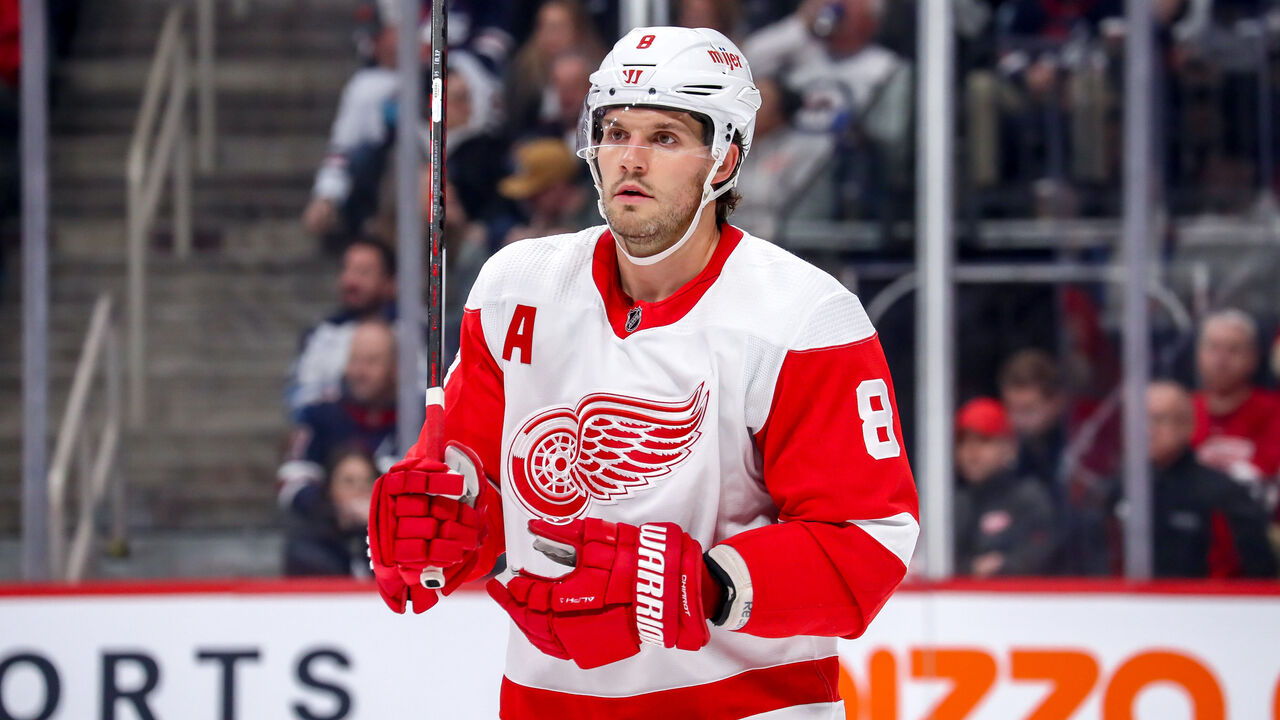
Nominees: Ben Chiarot (Red Wings), Tony DeAngelo (Flyers), Jack Campbell (Oilers)
Here we have an award no one wants to find themselves in the running for. Chiarot's long-term deal with Detroit paid little dividends in its first year, while DeAngelo's offensive production took a dive. He was also a healthy scratch more than once under head coach John Tortorella. Finally, if it weren't for the emergence of Stuart Skinner in the Edmonton goal, Campbell's debut season with the Oilers may have been the runaway winner.
And the winner is: Evidently, the droves of fans and pundits that forecasted Chiarot's four-year, $19-million contract being a problem for Detroit had a point. The rugged blue-liner was a team-worst minus-30 and has underlying numbers that indicate the cause is something much more alarming than bad luck.
Best leap year 🏆
Nominees: Jack Hughes (Devils), Tim Stutzle (Senators), Miro Heiskanen (Stars)
Not to be confused with a surprise breakout season, this award highlights players who've carried high expectations throughout their young careers and took the next step into superstardom in 2022-23. Hughes set a Devils single-season record with 99 points, flashing all the brilliance fans expected after he went first overall in 2019. Stutzle became a nightmare for the opposition in his third year and led the burgeoning Senators with 38 goals and 88 points. Last but not least, Heiskanen maintained his excellent defensive standards while exploding for a career-high 73 points, 37 more than his previous best.
And the winner is: Hughes. Nothing against the other candidates, but the Devils phenom staying healthy for most of the year and posting superstar numbers is great for the league and the Devils, who were one of the league's most exciting teams this season.
Non-McDavid MVP 🏆
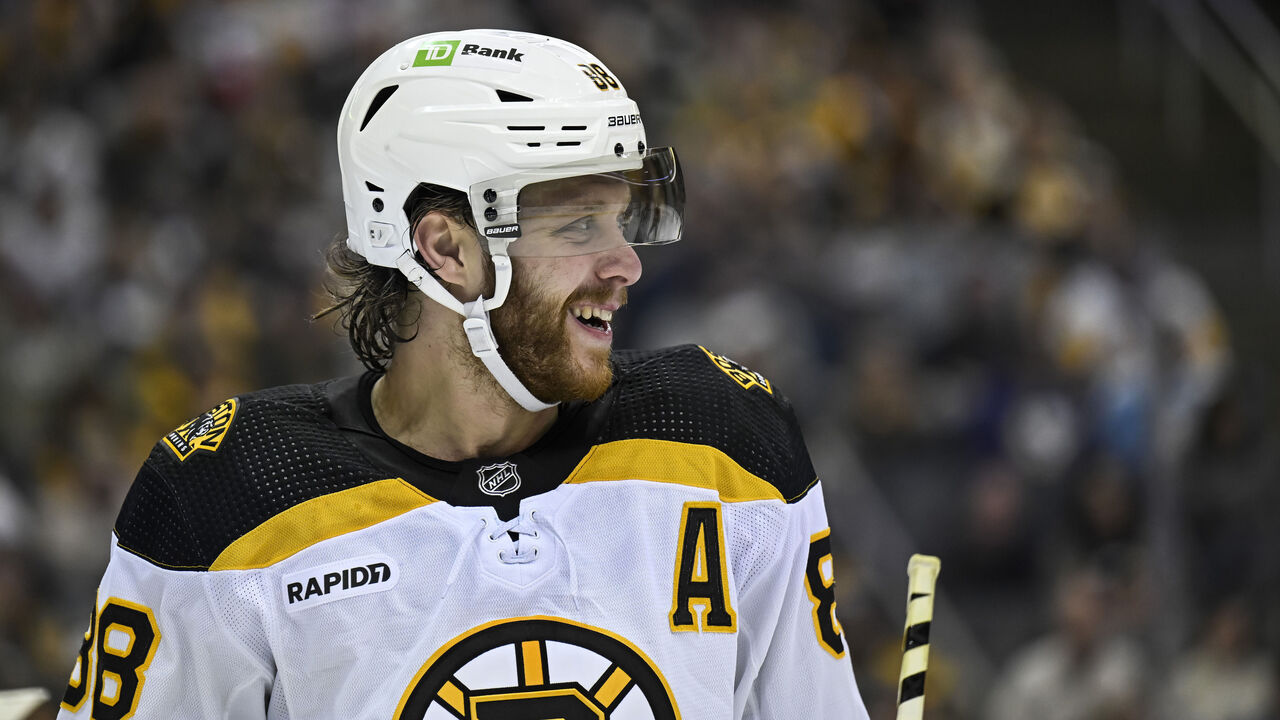
Nominees: Matthew Tkachuk, David Pastrnak (Bruins), Nathan MacKinnon (Avalanche)
Connor McDavid should be the unanimous Hart Trophy winner after tearing the league apart for 153 points, but we think these three have a great chance to be MVP finalists. Pastrnak joined McDavid in the 60-goal club and led the most successful regular-season team in NHL history in scoring by 46 points. MacKinnon sparked a sputtering Avalanche team back into the Central Division mix with a career-high 111 points in 71 games, good for the league's third-highest points-per-game clip at 1.56.
And the winner is: Tkachuk. We already mentioned his exploits above, and it carries weight that the Panthers aren't nearly as deep as the Bruins or Avalanche. Tkachuk was the only constant in the Cats' roller-coaster season, and he turned out to be the perfect fit after commandeering his way to Florida last summer. Pastrnak was almost the choice here, but even without all his points, Boston would have won a ton of games on the strength of its goalie duo.
Player most likely to regress 🏆
Nominees: Erik Karlsson (Sharks), Ryan Nugent-Hopkins (Oilers), Josh Morrissey (Jets)
Here we have three players that exceeded expectations this season, and three players we think don't have great odds to repeat in 2023-24. Karlsson and Nugent-Hopkins both eclipsed 100 points for the first time in their lengthy careers, while Morrissey added an offensive element to his game that simply didn't exist over his first seven campaigns.
And the winner is: Morrissey. Karlsson has the background as one of the most prolific offensive defensemen in NHL history, while Nugent-Hopkins is likely to continue sharing a power play with McDavid and Leon Draisaitl. Morrissey's previous career high in points was 37, leading us to believe this year's output isn't sustainable.
Most drawn-out trade saga 🏆
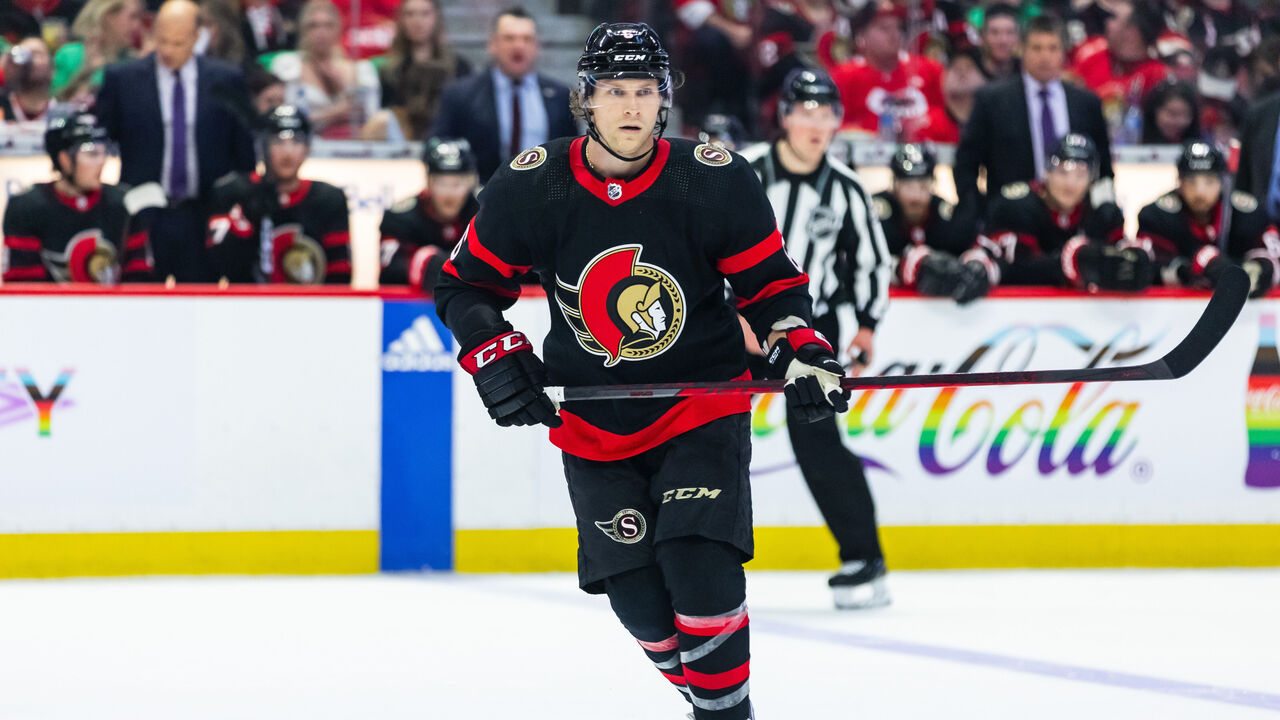
Nominees: Patrick Kane (Blackhawks to Rangers), Jakob Chychrun (Coyotes to Senators), Bo Horvat (Canucks to Islanders)
This year's trade deadline was a doozy, and the three names above were a tiny fraction of the players that were dealt. That said, each blockbuster chosen as a finalist here seemingly took forever. Kane kept his heart set on the Rangers while they took on highly complex salary cap gymnastics to make a deal work. Chychrun was finally moved after what felt like years on the market, and Horvat had his fate as Canucks captain sealed nearly two months after rejecting Vancouver's final extension offer.
And the winner is: Chychrun, by a lot. Coyotes general manager Bill Armstrong held the star defenseman captive as long as possible and ultimately moved him for a package of three picks - a price many felt was low. The 25-year-old was even held out of the lineup for nearly three full weeks while the deal with Ottawa materialized.
Sneakiest superstar 🏆
Nominees: Brayden Point (Lightning), Clayton Keller (Coyotes), Carter Verhaeghe (Panthers)
There were dozens of terrific individual outputs across the league this year, but these three did so without taking up much of the spotlight. Point has championship cache, but did anyone happen to notice he scored 51 goals this season? Keller matched Keith Tkachuk's Coyotes record with 86 points and was one of the NHL's most productive players post-All-Star break with 45 points, a total bested by only McDavid, Draisaitl, and MacKinnon. And congrats to you if you bet on Verhaeghe being a top-10 goal-scorer with 42 tallies.
And the winner is: Keller. The Coyotes only ever make headlines for the wrong reasons, but Keller deserved some league-wide attention for his outstanding production on a 27th-place Arizona roster. He also earns some props for having a career year on the heels of a gruesome leg injury sustained late in 2021-22.
Copyright © 2023 Score Media Ventures Inc. All rights reserved. Certain content reproduced under license.
Jets-Golden Knights series preview: Betting by the numbers
For years, the Jets vexed handicappers. They'd fit the profile of a team getting regularly outplayed at even strength but survived by converting an unusual amount of the chances they got and relying on their goaltender to outperform the opponent in the other crease.
This season - their first under Rick Bowness - they didn't have the win total they managed in recent years but played much better overall. In fact, the wild-card Jets rate awfully similar to their first-round opponent - the Golden Knights.
Series odds
| TEAM | GAME 1 | SERIES | SERIES HANDICAP |
|---|---|---|---|
| Jets | +125 | +140 | +1.5 (-145) |
| Golden Knights | -145 | -175 | -1.5 (+115) |
From a win-loss perspective, the Golden Knights used a hot start and a big finish to take the Pacific Division, while the Jets held off the Flames and Predators for the final wild card. Despite a 1-8 conference seeding matchup, top-seeded Vegas is expected to win this series less than 60% of the time.
Ratings
Using primarily even-strength metrics to evaluate a team's quality, we've established how a team rates relative to an average NHL team. We use these ratings to create an implied win probability split in each game which we then translate to a fair moneyline price for each before home-ice advantage is applied, and the sportsbook takes their vig on a bet. Here's how these teams rated for the season, and when isolating play after the All-Star break.
| TEAM | SEASON | POST-ASB |
|---|---|---|
| Jets | +4% | +2% |
| Golden Knights | +11% | +2% |
The Golden Knights' second strong stretch of the season wasn't nearly as impressive from a play-driving perspective, as both Vegas and Winnipeg were merely slightly above average after the All-Star break.
Advanced metrics at even-strength
XG%= Expected goal share
HDC%= High-danger chance share
HDCV%= High-danger chance conversion rate
OPP. HDCV%= Opponents' high-danger chance conversion rate
| TEAM | XG% | HDC% | HDCV% | OPP. HDCV% |
|---|---|---|---|---|
| Jets | 51.0 | 52.4 | 11.2 | 12.0 |
| Golden Knights | 50.7 | 52.4 | 13.2 | 10.9 |
*Average NHL HDCV% = ~12.5%
You won't find a closer matchup at even strength from a chance-creation standpoint. The Golden Knights were better than the Jets at converting chances and keeping them out of the net despite Winnipeg having the former Vezina-winner still at the top of his game.
Goaltending matchup
| PLAYER | GSAx/60 MIN. |
|---|---|
| Connor Hellebuyck | 0.53 |
| Laurent Brossoit | 0.62 |
No, the above isn't the Jets' goaltending depth chart from 2018-21. Vegas played five different goaltenders this season, riding a hot Logan Thompson early but eventually letting Laurent Brossoit, the former backup of Connor Hellebuyck, grab the reins late after Thompson got hurt. While Brossoit's goals saved above expected (GSAx) reads better than Hellebuyck's, a small sample size of just 10 starts doesn't confirm anything other than Brossoit's right to getting the first crack in the crease against his former team.
Special teams
| TEAM | PP% | PK% | PP+PK |
|---|---|---|---|
| Jets | 19.3 | 82.4 | 101.7 |
| Golden Knights | 20.3 | 77.4 | 97.7 |
Vegas mitigates its poor penalty kill by rarely having to kill a penalty. With an NHL-low 2.38 times shorthanded per game, is it doing something differently than the other 31 teams? Or is regression around the corner in the short sample of a playoff series?
Moneyline betting guide
If you followed our NHL betting guide where we projected moneylines for each game, allowing us to compare and contrast our price to bet with what's available on a daily basis, you may be interested in what prices would be considered valuable for each team when they're on the road, at home, and for the series as a whole.
Price to bet
| TEAM | NEUT. WIN PROB | GM 1/2/5/7 | GM 3/4/6 | SERIES PTB |
|---|---|---|---|---|
| Jets | 47.1% | +150 | +110 | +159 |
| Golden Knights | 52.9% | -122 | +111 | -129 |
The Jets opened as high as +165 on the series but were immediately bet through our "price to bet" to as low as +140. This is a sign that the market understood that this series should be lined closer than at first look.
Best bet
I'd need the series price to return to +150 to fire on the Jets, but since the market is of the same opinion that we're in for a long series, we'll look for ways to bet that idea without having to give up much in the way of value or pay a lot of juice.
I have the fair price for Jets +1.5 games at 60%, which suggests appropriate odds of -150. That bet can be found for as low as -140. A +1.5 series bet wins no matter what happens in a potential Game 7, and I have the probability of a winner-take-all game happening at 31%. So while +223 would be fair price, anything at +200 or better would be good enough for me. That's because a potential Game 6 in Winnipeg would likely come with close to a coin-flip moneyline split, and we'd be content with needing either team to win to force a Game 7 since we'd be getting +200 on the team down 3-2.
As for the opener, we'll hope to get +133 on the Jets' moneyline before Tuesday night, and if not, we'll just let our series bets carry the weight of our interests in Game 1.
Game 1: Jets moneyline (+133 or better)
Series: Jets +1.5 (-145 or better)
Series: Over 6.5 total games (+215)
Matt Russell is the senior betting writer for theScore. If there's a bad beat to be had, Matt will find it. Find him on Twitter @mrussauthentic.
Copyright © 2023 Score Media Ventures Inc. All rights reserved. Certain content reproduced under license.
Sunday NHL Rumor Roundup – April 16, 2023
3 more awards the NHL should add, and choosing 2022-23’s winners
The NHL hands out plenty of major hardware at its annual awards night, but some of the campaign's most impressive feats still manage to fall by the wayside without proper recognition.
Below, we look at three individual awards the league should add and determine who would win them this season.
Best Defensive Defenseman
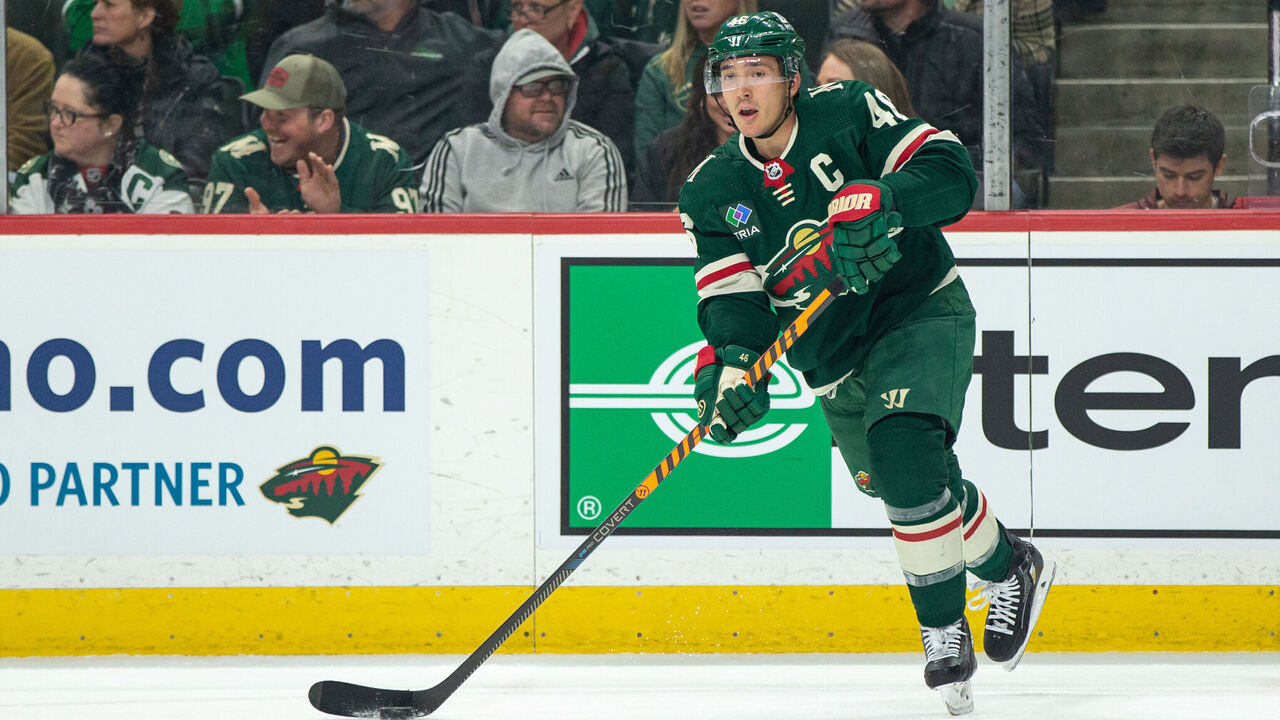
While the Norris Trophy is given to the best all-around defenseman, ranking among the league leaders in points at the position is typically a prerequisite to draw serious consideration. However, this trophy would focus solely on the defensive contributions of blue-liners and how well they're able to keep the puck away from their net. Logging heavy minutes against top competition is a must for this winner.
Finalists: MacKenzie Weegar (Calgary Flames), Jaccob Slavin (Carolina Hurricanes), Jared Spurgeon (Minnesota Wild)
This is the toughest award of the three to decipher. Even with all the data available in this day and age, it's still difficult to evaluate defensive defensemen. What's fascinating, though, is how all three defend in completely different ways.
Weegar is extremely physical, ranking in the top 20 among defensemen in hits with 186. The 5-foot-9, 166-pound Spurgeon is one of the smallest defenders in the league, but he makes up for it with strong skating and elite positioning. Slavin isn't very physical despite his 6-foot-3, 207-pound frame, but he possesses a great stick that he's always using to break up plays.
And all three players are neck and neck in every statistic at our disposal.
Weegar leads the way in defensive goals above replacement (12.1), Evolving-Hockey's catch-all metric for defensive play. Spurgeon ranks seventh among defensemen (8.9), while Slavin ranks 11th (8.1).
But Spurgeon and Slavin are both more disciplined, as they produced 2 and 2.6 GAR, respectively, in penalty differential, compared to Weegar's 0.6 mark. All three players own nearly identical marks in on-ice expected goals against per 60 minutes at five-on-five, ranking fifth (Spurgeon), seventh (Slavin), and eighth (Weegar) league-wide.
Winner: Slavin. All three players are extremely close in several metrics, but the biggest advantage for Slavin is in the form of takeaways. His 88 are tied for the most among NHL defensemen and blow Weegar's 38 and Spurgeon's 15 out of the water.
Most Improved Player
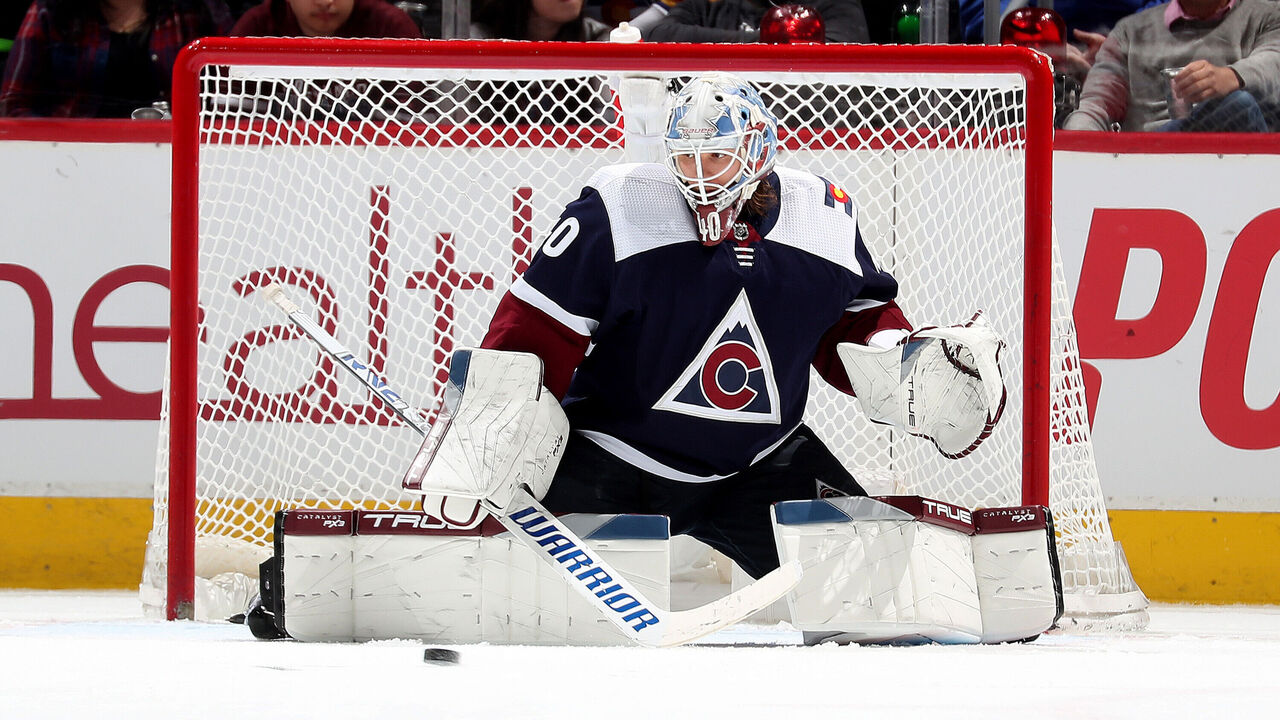
The NBA hands out this award annually, and there's no reason the NHL shouldn't follow suit with a trophy that recognizes growth. And no, this won't be a pity prize for the league's worst player like it is in youth hockey. We're looking for someone who made a serious leap.
Finalists: Tim Stutzle (Ottawa Senators), Vince Dunn (Seattle Kraken), Alexandar Georgiev (Colorado Avalanche)
Stutzle made huge strides this season, racking up 90 points - a 32-point improvement from 2021-22. The German phenom was dangerous every time he took the ice, and the scary part is the 21-year-old still has plenty of room to grow.
Dunn was superb for the Kraken, ranking second on the team in points (64) and first average ice time (23:40). Seattle lacks a true star player, so having a dynamic threat from the back end in Dunn was a huge reason the club made the playoffs in its second season ever.
If there ever a case study to show how unpredictable goalies are, look at Georgiev. He was one of the worst netminders in the league last season, posting an .898 save percentage as the New York Rangers' backup, but in his first campaign with the Avalanche he was simply excellent, producing a .918 save percentage in 62 starts while tying for the league lead with 40 wins.
Winner: Georgiev. The Avs' workhorse starter gets the edge here considering just how important he was to his team. With all the injuries Colorado suffered this year, Georgiev remained one of the few constants the team could rely on night in and night out.
Comeback Player of the Year
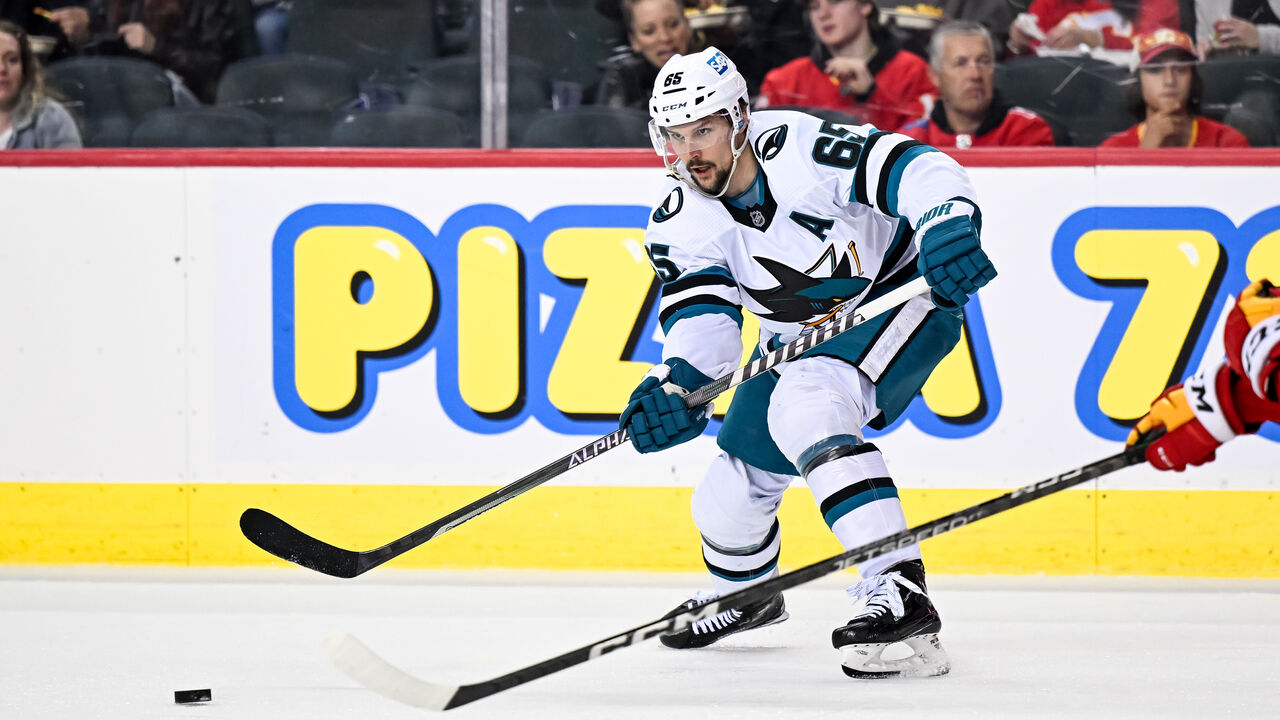
The NFL hands out this award annually - typically to a player who had their previous season cut short due to injury and overcame adversity to have a sensational comeback campaign. Coming off an injury helps present a better case, but it's not required in this exercise. The Comeback Player of the Year could very well be rewarded to someone had a great season after being written off due to a poor one previously.
Finalists: Erik Karlsson (San Jose Sharks), Jamie Benn (Dallas Stars), Joonas Korpisalo (Columbus Blue Jackets/Los Angeles Kings)
Karlsson and Benn are two players who many fans likely thought were over the hill, but both have proven they have plenty of gas left in the tank. Karlsson, 32, is the Norris Trophy favorite even though injuries caused him to miss 69 out of a possible 372 games over the past five seasons since joining the Sharks. Yet he managed to rack up a historic 101 points this season while playing for a basement-dwelling team.
Benn, 33, also bounced back in a huge way this season, racking up 78 points - his most in a season since 2017-18. He tallied just 46 a year ago.
Korpisalo battled injuries en route to a disastrous 2021-22 campaign that saw him post an .877 save percentage - the worst among qualified goalies. But he was sensational this year, posting a .914 save percentage between the Blue Jackets and Kings.
Winner: Karlsson. How could it be anyone else? He's only the sixth defenseman in NHL history to record 100 points in a season, and the first since Brian Leetch in 1991-92.
Copyright © 2023 Score Media Ventures Inc. All rights reserved. Certain content reproduced under license.
NHL Morning Coffee Headlines – April 16, 2023
Canada, U.S. squaring off in women’s world championship final
Canada and the U.S. took care of business Saturday at the IIHF Women's World Championship to set up another gold-medal clash between the rivals.
The Americans dismantled Czechia 9-1 in the first semifinal. Tessa Janecke, Amanda Kessel, and Hilary Knight each tallied two goals in the contest. Defender Caroline Harvey registered four points to match Finland's Petra Nieminen atop the tournament's scoring leaderboard. Aerin Frankel made 14 saves in the win.
Canada had a closer outing, defeating Switzerland 5-1 in the other semifinal. Despite dominating the shot tally, the Canadians didn't find the back of the net until Sarah Fillier finally solved netminder Andrea Braendli at the game's midway point.
Fillier added another two goals to complete her first hat trick at the world championship and put the game out of reach. Natalie Spooner tallied three assists in the victory, while Ann-Renee Desbiens made eight saves en route to the win.
Canada defeated the U.S. 4-3 in the shootout during the tournament's preliminary round. Knight and Kessel scored for the Americans in the final minute of regulation to send the game into overtime.
Canada edged the United States 2-1 in the 2022 gold-medal game in September. Brianne Jenner scored both goals for the Canadians.
The gold-medal matchup commences Sunday at 7 pm ET.
Copyright © 2023 Score Media Ventures Inc. All rights reserved. Certain content reproduced under license.
5 biggest surprises of the NHL season
Every NHL season has its own unique storylines we never saw coming.
The unexpected breakout performances, trades, and storylines are what make for the most interesting aspects of any given year. Whether it's a team setting records, a player we had written off finding his past form, or plenty of other scenarios, the unforeseen elements of a season are why we love sports.
Here are five of the biggest surprises from the 2022-23 NHL campaign.
Bruins' historic dominance
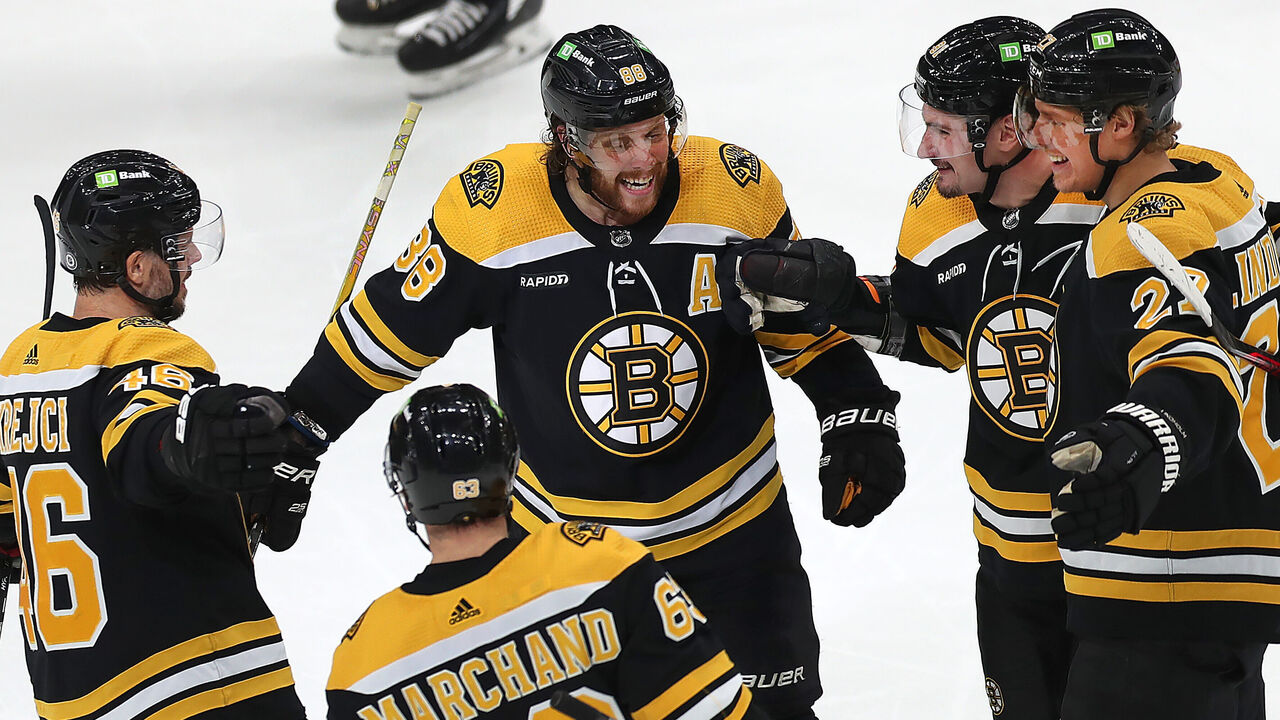
Remember when there were concerns over the Boston Bruins entering the season thanks to various injuries? That was adorable.
An NHL-record 65 wins. An NHL-record 135 points. The fastest team ever to 50 wins and 100 points. The Bruins were as close to unbeatable as we've ever seen from a regular season squad.
Coming in, the Bruins were on a path of regression. They exited in the first round last season for the first time since 2017 and subsequently fired Bruce Cassidy. Brad Marchand, Charlie McAvoy, and Matt Grzelcyk were all slated to miss significant time. Boston was supposed to be closer to a bubble team than a President Trophy winner.
How did the Bruins exceed expectations by such a massive margin? David Pastrnak's spectacular 61-goal, 113-point campaign is a good place to start. Leading the team in scoring by 47 points, Pastrnak's offensive prowess was vital to Boston's success.
Jim Montgomery took over behind the bench and made the Bruins the league's best defensive team, led by Mr. Selke Trophy, Patrice Bergeron. Couple it with Linus Ullmark's Vezina-caliber campaign, and that's a recipe for lots of wins.
Hampus Lindholm shouldn't be overlooked, either. The 29-year-old was a massive part of the Bruins' early season success while McAvoy was out of the lineup. He doesn't have the eye-catching power-play production of other Norris Trophy candidates, but Lindholm's dominant five-on-five play is worthy of votes for the award.
Nobody saw a historic season of this magnitude coming from the Bruins.
Karlsson turns back the clock
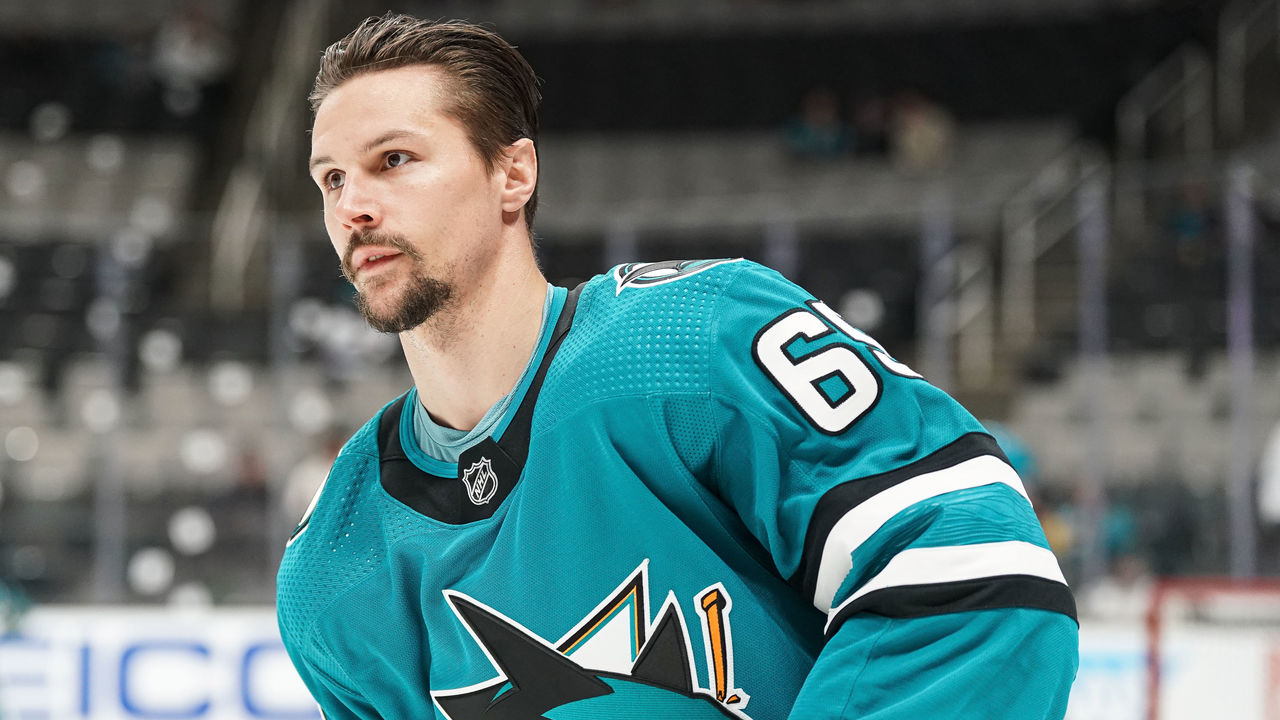
Not long ago, Erik Karlsson's massive $11.5-million cap hit was viewed as one of the biggest anchor contracts in the league. Now, he's the favorite to capture the Norris Trophy.
There simply isn't enough you can say about Karlsson's remarkable season. If tallying over 100 points as a defenseman isn't crazy enough, how about finishing second in the entire league in five-on-five scoring?
Many had resigned themselves to appreciating Karlsson's heyday with Ottawa as he played out his monster contract in San Jose. Nobody imagined he could turn back the clock the way he did this season considering his significant injury history.
It's important to remember the context of Karlsson's tenure with the Sharks coming into 2022-23. He'd never played more than 56 games in a season with San Jose over his four years there. In 211 games with the Sharks, he'd tallied 27 goals and 142 points - a 10-goal, 55-point pace over 82 games.
Karlsson scored 25 goals this season alone and added 101 points. His totals in 2022-23 exceed both his goal output and point production from the previous three seasons combined.
As unexpected as the Bruins' historical season was, Karlsson's resurgence is the biggest shock of the year.
Devils go bottom-five to top-five
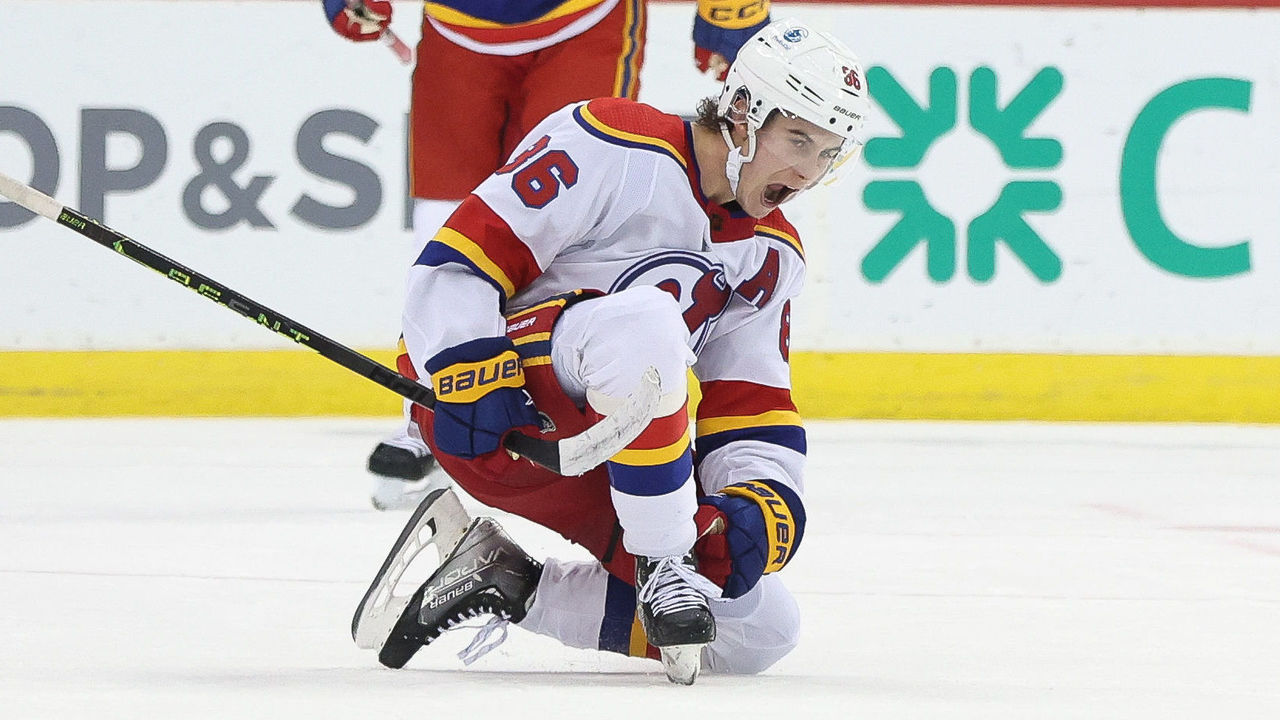
The New Jersey Devils were an intriguing team coming into the campaign. Sunk by abysmal goaltending in 2021-22, the Devils had a new starting goaltender and an exciting blend of talent ready to take the next step.
In a competitive Metropolitan Division, some anticipated New Jersey to be in the hunt for a wild-card spot. Instead, the team went bottom five to top five league-wide and made a significant push for the division title.
Everything came together for the Devils. Jack Hughes stayed healthy for the vast majority of the season and emerged as one of the premier dual threats in the league. Nico Hischier found another level offensively to put himself in the conversation for the Selke Trophy. Vitek Vanecek proved he could be a quality starting goaltender.
Dougie Hamilton didn't just return to form, he set career highs. Jesper Bratt proved his breakout in 2021-22 wasn't a fluke, while Dawson Mercer continued on his exciting upward trajectory.
We knew the Devils' future was incredibly bright with their young talent and prospects on the way. Realizing that potential this quickly - going from 63 points a year ago to 112 - makes for an easy pick as one of the biggest surprises of the season.
Flames miss playoffs after blockbuster summer
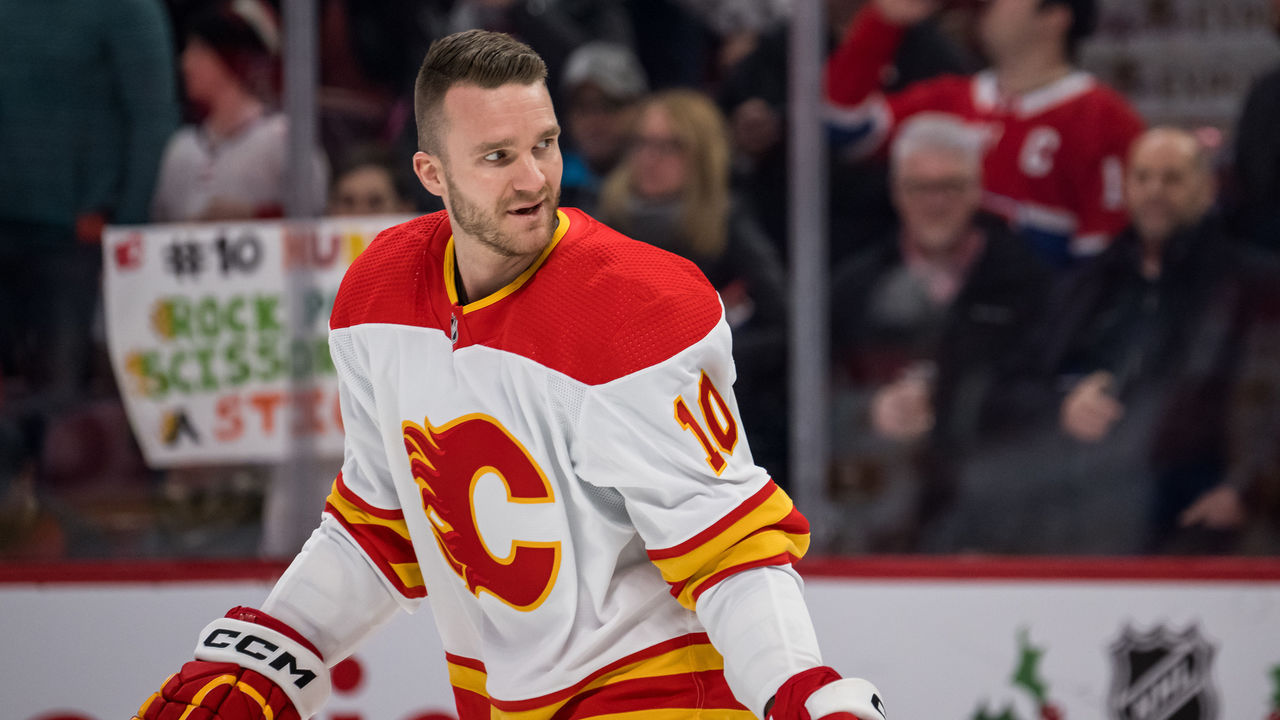
No team featured in as many major headlines last summer as the Calgary Flames.
Whether it was Johnny Gaudreau leaving town, the Matthew Tkachuk blockbuster, the free-agent signing of Nazem Kadri, or the massive extension handed out to Jonathan Huberdeau, the Flames were constantly in the news heading into the 2022-23 campaign.
Even with two-thirds of the dominant top-line departing, expectations were high for Calgary. Many considered the team to be better thanks to its improved depth, elite defense group, and potential Vezina goaltending.
It simply never materialized. Jacob Markstrom and Dan Vladar struggled mightily. Huberdeau's production cratered and the rest of the team was unable to make up for the high-end scoring lost in the offseason.
Despite being among the league's best possession teams, the Flames frustratingly couldn't break through when it mattered most. Calgary led the league in one-goal losses and set the all-time mark for losses when outshooting the opponent by 10 or more shots.
Of the 16 teams to miss the postseason, none are as big of a surprise as the Flames.
Chychrun yields only one 1st-round pick
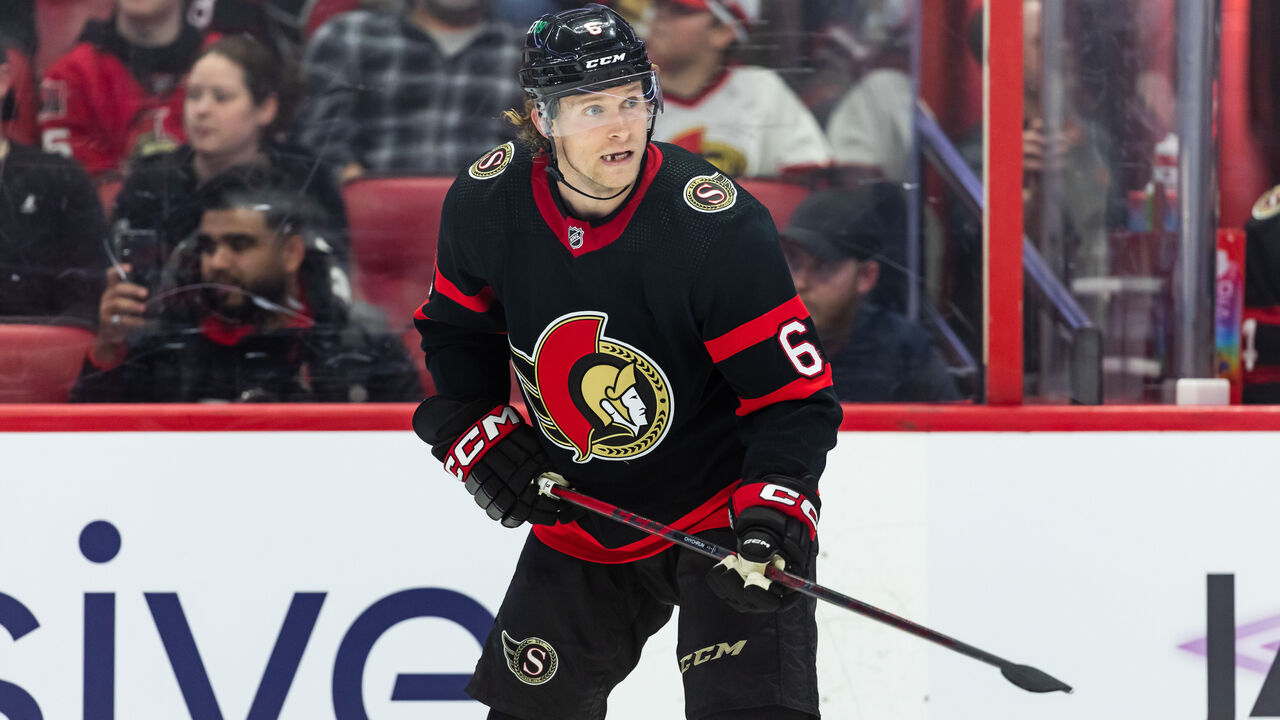
After a seemingly never-ending saga of rumors and reports, the hype for an eventual Jakob Chychrun trade was significant. Whether it was the destination or the acquisition cost, every aspect of the inevitable deal was tantalizing.
The Ottawa Senators were always a dark horse in the Chychrun sweepstakes, so Pierre Dorion being the general manager to land the perceived top defenseman on the market wasn't a massive surprise. What was, however, is the price he had to pay.
The Arizona Coyotes received a package of three draft selections for Chychrun: a 2023 first-round pick, a 2024 second-round pick, and a 2026 second-round pick.
Considering the massive haul the Coyotes were anticipated to receive for Chychrun's services, it was a stunning outcome to see Arizona land just one first-round pick for the 25-year-old.
In the end, Bill Armstrong coveted a quality first-round pick over multiple first-round selections in choosing the Senators' package. No contending team that was in the market for Chychrun could match Ottawa's ability to offer a top-15 pick in the anticipated 2023 NHL draft.
Even so, the shock of the Senators needing to give up only one first-round pick for the most talked-about trade chip over a year's span makes for among the most surprising transactions of the campaign.
Copyright © 2023 Score Media Ventures Inc. All rights reserved. Certain content reproduced under license.